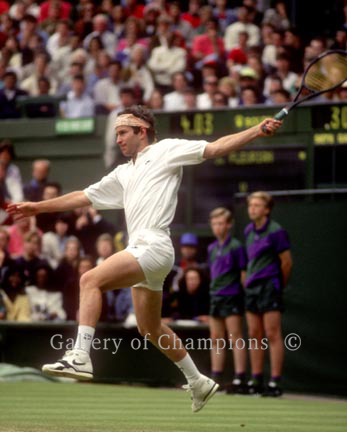The Impact of John McEnroe on Tennis and Sports Culture

Introduction
John McEnroe, an iconic figure in the world of tennis, not only dominated the sport in the late 1970s and 1980s but also shaped the emotional and competitive landscape of the game. Known for his exceptional skills and fiery temperament, McEnroe’s influence extends beyond his titles, making him a significant cultural icon. As the tennis community reflects on his legacy, understanding McEnroe’s impact on tennis and sports culture is essential.
Early Life and Career
Born on February 16, 1959, in Wiesbaden, Germany, McEnroe moved to New York with his family at a young age. He began playing tennis at a local club, quickly showcasing his talent. By the time he reached high school, he was one of the top players in the nation. He won the NCAA singles title while attending Stanford University and turned professional in 1978.
Achievements
McEnroe’s career boasts seven Grand Slam singles titles: three at Wimbledon and four at the US Open. He was known for his serve-and-volley style, precise hand skills, and tactical intelligence on the court. His rivalry with players like Björn Borg and Jimmy Connors captivated audiences and helped elevate the popularity of tennis globally. In addition to his singles accomplishments, McEnroe won nine Grand Slam doubles titles, further solidifying his reputation as one of the sport’s all-time greats.
Personality and Controversies
Perhaps equally known for his temperamental outbursts as for his tennis prowess, McEnroe famously engaged in heated arguments with officials, often resulting in fines and penalties. Phrases like “You cannot be serious!” became synonymous with his persona, emphasizing the blend of fierce competitiveness and vulnerability. While his behavior sometimes drew criticism, it also brought attention to the emotional aspect of sports, challenging the notion of stoic professionalism.
Legacy and Current Endeavors
Today, McEnroe remains active in the sport as a commentator and analyst. His insights provide valuable perspectives for new generations of tennis players and fans. Additionally, McEnroe has embraced charitable endeavors, promoting youth tennis programs and advocating for mental health awareness in sports. His journey demonstrates that the complexity of an athlete’s personality can contribute significantly to their legacy.
Conclusion
John McEnroe’s impact on tennis and sports culture is undeniable. As a player, he redefined the approach to competitive sports with his expressive style, and as an individual, he has become a role model for embracing authenticity in the face of societal expectations. As future generations look toward the sport, McEnroe’s legacy will continue to influence, reminding us that passion and personality are as important as records and titles in the world of athletics.









